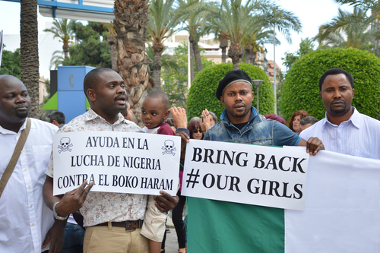On July 22, 2011, two simultaneous terrorist attacks took place in Norway, conceived by 32-year-old Norwegian businessman Anders Behring Breivik, which killed 92 people. The first was the explosion of a car bomb in a Norwegian ministry building located in the capital Oslo. The second and most brutal took place about two hours later, on the island of Utoya, 40 km west of the capital, where Anders shot a group of young Labor Party youths who were meeting in a camp. This incident corresponds to the biggest attacks in recent history in Western Europe, the biggest in Norway since the end of the 2nd.The World War.
In early September 2012, a 14-minute trailer for a feature film titled Innocence of Muslins (“Innocence of Muslims”) which satirized Muhammad, prophet and creator of Islam, with harsh criticism of the Islamic religion, from the prophet's insinuation of homosexuality to the connection of Islam with conquests and violence. First attributed to a Jew, the film produced in California in August 2011 was apparently directed by an Egyptian Coptic Christian. The actors and other producers involved claimed that they did not know about this content and that the offensive dubs were carried out in a post-production in which they had no participation. In response, several attacks and harassment against the West began to take place in Islamic countries such as Libya, Egypt, Yemen and Afghanistan. About all these facts, some considerations can be made.
Norway is an exemplary nation considering its form of government and the distribution of wealth. The Labor Party has governed the country for over 60 years, with some minor interruptions. It was founded in 1887 linked to Marxist principles, including participating in the creation of the Communist International in 1919. Shortly thereafter, it became a social democracy. Currently, conservatives, also known as progressives, are looking for an alternative government based on economic liberalization and gradual elimination of social welfare typical of countries Scandinavians. The population of the country decided in a referendum held in 1994 not to join the European Union for fear of losing national sovereignty and social achievements. The absolute majority of Norwegians expressed perplexity at the attacks, mainly because of the chosen targets: young whites and Norwegians. To suppose that the expression of hatred for the Islamization of Europe (according to the shooter) would be more accepted if the attack was against “those different” sounds pretentious, a conceptual temptation. But Anders' choice is very similar to the 1995 assassination of Israeli Prime Minister Yitzhak Rabin, which was committed. by a Jewish extremist opposed to the agreements contemplated by Rabin, who sought understanding between Jews and Palestinians. Coincidentally, these agreements were signed right in the city of Oslo.
Islam and Islamic culture began to spread from the 7th century, especially in the Middle East and North Africa. Indonesia, a country located in Southeast Asia and with a Javanese majority, is an exception, with the largest number of adherents of the Islamic religion in the world. Islam has the Qur'an as a holy book, which carries out a particular interpretation for a series of events historical and mythical that Christians and Jews consolidated in their beliefs and adds the teachings of Muhammad, mentor and greatest prophet of Islam. Fundamentally, Islam has two divisions: Sunnis, who represent 90% of the world's Islamists, and Shiites, the majority in countries like Iran, Iraq and Bahrain. The pillars of the Islamic faith reside in the Koran and in the figure of the prophet Mohammed, the main target of the film's provocations. Far from motivating intolerance, Islam ends up suffering the interpretation of fundamentalist leaders and that encourage violence, especially in locations where social inequalities and disputes occur. territorial.
Do not stop now... There's more after the advertising ;)
Possible relationships between extreme acts
We can organize the terrorist attacks carried out in the 21st century into three groups: State terrorism, carried out by a de facto State against minorities or against other nations; attacks related to separatism and border delimitation; and attacks carried out around nationalist ideals, religious fanaticism and other symbolic motivations. In this last group, we can identify attacks organized by highly organized terrorist groups and extremism carried out by individuals who share some type of ideology. This is where the attack in Norway comes in and, so far, only one person is involved in its planning and action. As well as the angry reaction of many adherents of Islam around the world regarding the video about the prophet Muhammad, whose violence has been fueled by radical Islamic leaders and organizations such as Al Qaeda, Hezbollah and Hamas.
One of the explanations for this type of terrorism is the need to strengthen traditions and symbolic values, which is very common in times of economic and political crisis. These manifestations are based on the basic principle of survival, circumvented by moral values, religious or not. Between Al Qaeda and the Norwegian businessman there is a gulf of ethnic, historical and geographic differences. But, in common, there is a sense of cultural self-assertion in the face of a lack of capacity (or ability) to to manage and adapt to the global flows of information that are going through a spectacular phase of speed and the amount. Finally, a very simple consideration: at some point in human recent history did Europeans accept the Islamists or did the Arabs accept Western political interference?
Julio César Lázaro da Silva
Brazil School Collaborator
Graduated in Geography from Universidade Estadual Paulista - UNESP
Master in Human Geography from Universidade Estadual Paulista - UNESP

